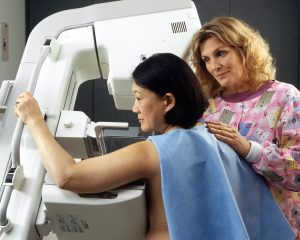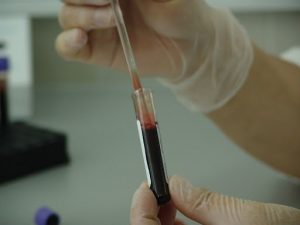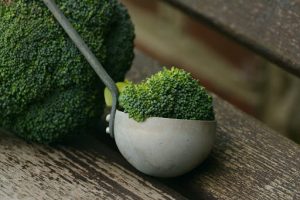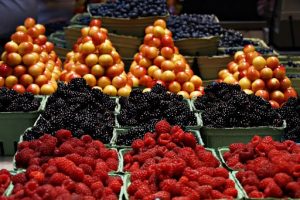Cancer remains the second leading cause of death in the US after heart disease. A lot of the research indicates that many of these deaths can be prevented by diet. So is a plant-based diet good for cancer?

It’s estimated that 1.8 million people will be diagnosed with cancer in 2020. There are many causes behind cancer, some of which are controllable. Nutritionists, fitness experts, and health professionals all recommend a plant-based diet to prevent deadly diseases like cancer.
What you eat has a role to play in your life, and it can go either way. It’s never too late to make the right change. Could a plant-based diet be the change you need to prevent or fight cancer? There’s growing evidence to support that hypothesis.
What is Cancer?
Cancer is a general term that describes a wide range of diseases resulting from an unusual growth of cells in the body. These cells divide and can destroy tissues in the body.
There are more than a hundred types of cancers. It’s usually distinguished based on what organ or part of your body it affects. Some of the common types of cancers are:
- Breast cancer
- Lung cancer
- Skin cancer
- Prostate cancer
- Colon cancer
- Brain tumors
- Lymphoma
- Leukemia
Cancer Risk Factors
Some cancers are pretty deadly, while others have a better chance of curing. However, many of the risk factors among different types of cancers are common. This is why it’s important to know most of them for both men and women.

Here are the common risk factors and causes of cancer:
Age
This is one of those factors that are outside one’s control. If we look at the bigger picture, age is perhaps the most common risk factor for all types of cancers. As you age, you’re more likely to get cancer.
This is evident from the National Cancer Institute’s SEER program data that identifies the median age for cancer diagnosis as 66 years. Of course, age is not the only factor, as it’s often a combination of age and one or more risk factors.
Bad Diet
Studies have indicated that certain foods can cause cancer in the long run or at least increase the chances. For instance, one study from the Nutrition Journal indicated that sugar and refined carbs are likely to increase the risk of cancer.
Some studies have shown that some food groups or isolated compounds contain carcinogens. According to the same Nutrition Journal study, overconsumption of dairy can increase the risk of prostate cancer in men.
Diet is also linked with other conditions that can ultimately cause cancer, for example, obesity.
Cancer-causing Substances
Many substances are classified as carcinogens that can cause cancer. This is one of the reasons why some otherwise healthy people also fall prey to cancer. Some of these substances include arsenic, asbestos, benzene, coal tar, formaldehyde, tobacco smoke, and wood dust.
Just because a substance is a carcinogen doesn’t mean it can definitely cause cancer. However, it does increase the risk, especially if you’re exposed to it on a regular basis.
Some other environmental factors can also damage DNA and cause cancer. For instance, sun exposure is also considered a risk factor for cancer. Ultraviolet rays have been known to increase the risk of skin cancer.
Obesity
Obesity is the root cause of so many life-threatening diseases, including cancer. Being overweight can increase the risk of breast cancer in women after menopause. Similarly, it’s also linked with other cancers like colon, rectum, kidney, gallbladder, and pancreas.
Cohort studies have shown a strong link between obesity and several types of cancers. This review study that observed past and recent data confirms the link. It also says that those obese individuals who lost weight reduced their cancer risk.
Radiation
Radiation is one of those risk factors that have a higher chance of causing cancer than other factors. Again, much like UV rays, some rays can damage DNA, causing cancer. Radiation has been linked with leukemia and other solid cancers.
Those who are continuously exposed to ionizing radiation are at a higher risk of getting cancer. For instance, those who work in nuclear plants have a 10% higher chance of death from cancer, according to WebMD.
Tobacco
Smoking is the leading cause of lung and bronchial cancer. Even those who are exposed to secondhand tobacco smoke are at risk. That’s not all; tobacco can also increase the risk of cancer of the throat, kidney, stomach, colon, liver, and cervix.

This is mainly because of the chemicals in cigarettes. Around 250 chemicals known to be present in tobacco smoke are harmful. A large cohort of studies about tobacco smoking and cancer from around the world shows a strong association between the two.
Can a Plant-based Diet Prevent Cancer?
One of the many benefits of a plant-based diet includes the prevention of diseases like cancer. This type of diet is rich with vegetables, fruits, nuts, and seeds that can lower the risk of getting cancer of any kind.
The science behind it is simple: plant-based diet boosts immunity, reduces inflammation, and doesn’t cause any harm that perhaps a diet with meat or processed food would cause. A large review study from France showed that people who consume large amounts of processed meats are at a 20 to 50% higher risk of colorectal cancer.
A 2017 report from the World Cancer Research Fund and American Insitute for Cancer Research recommends a plant-based diet for cancer prevention. This overwhelmingly detailed report used data about 51 million people from across the world. The main takeaway is that a healthy diet rich in plant-based whole foods and whole grains can prevent 40% of cancer cases worldwide.
Another study published in the Journal of Unexplored Medical Data explored the effects of a plant-based diet for cancer prevention. It emphasizes that a plant-based diet can prevent 15 leading causes of deaths, including many deadly cancers.
Is a Plant-based Diet Good for Cancer Patients?
There’s strong evidence that a plant-based or vegan diet is the best solution for those with cancer. However, the approach has to be very holistic, combining medication, diet, and activity.
Many foods in the plant-based group have proven cancer-fighting effects. However, the key factor is something called anti-angiogenesis. This process basically blocks the supply of blood to cancer cells, as explained in this video at NutritionFacts.org.
Interestingly, as the video shows, cancer cells are present in virtually everyone. However, they only turn into the disease when blood is supplied, and they turn into a tumor. This may also explain why certain foods like meat or dairy may cause the opposite effect and increase cancer.
Plant-based Foods with Cancer-Fighting Properties
There are a host of foods that help with the anti-angiogenesis, which can help cancer patients control the spread of cancer cells. Here’s what you should eat for both cancer prevention and treatment:
Vegetables
We have known for a long time that vegetables are great for disease prevention. However, some of these are simply great for cancer patients. Research has shown that some of these vegetables are ideal for treating breast cancer in the long-term.

Most of the studies related to cancer and nutrition have been performed on animals. For instance, one study showed that cruciferous vegetables reduced the size of tumors in mice. The main component responsible is sulforaphane.
Garlic is another vegetable that one can incorporate in almost every dish. It has a cancer-fighting substance named allicin. One study associated garlic with risk reduction and treatment of gastric cancer in particular.
Some of the anti-cancer vegetables include:
- Broccoli
- Cabbage
- Cauliflower
- Carrots
- Garlic
- Tomatoes
Fruits
Fruits are rich in antioxidants that serve mainly as damage control by taking care of free radicals in our bodies. These free radicals can have a degenerative effect on cells, which is all the more hazardous for someone with cancer.
While all fruits are healthy and nutritious, some fruits are better for cancer treatment. For instance, the number of antioxidants in apples is pretty high. However, the winner in this regard is berries.

Berries contain anthocyanins, which are pigments with antioxidant effects. One Cancer Prevention Research study involving patients with colorectal cancer found berries to reduce the growth of cancer cells.
Adding as much as two cups of berries in your daily diet can impact the growth of cancer cells. Here are some of the fruits and berries you should consume:
- Apples
- Bananas
- Oranges
- Lime
- Grapefruit
- Lemon
- Cranberry
- Raspberry
- Bilberry
Beans and Legumes
One nutrient you need to increase in your diet is fiber. Beans and legumes are rich in fiber. These are specifically helpful in the treatment of colorectal cancer.
One study involving 1905 participants with colorectal tumors showed that beans reduced the risk of tumor recurrence.
Nuts
There’s ample scientific evidence to prove that regular consumption of nuts can prevent a number of cancers. It’s safe to say that consuming nuts is also beneficial for those already with cancer.
A Journal of Nutrition study on mice showed that walnuts had the potential to reduce the number of tumors by 60%.
Olive Oil
Cancer patients should stick to olive oil as it has tons of benefits. It’s known for playing a vital role in cancer prevention.
The Mediterranean diet, which uses a lot of olive oil, can prevent cancer and other deadly diseases. Research on the eating habits of people from this region has shown that the inhabitants there are at a lesser risk of colorectal cancer.
Can Cancer Be Cured?
The cancer cure debate has a lot of different angles and is sort of controversial as well. The research to find the cure for cancer is ongoing and has cost billions of dollars. We have seen radiation and chemotherapy help cancer patients, but can diet play a similar, if not better, role?
Clearly, there’s a need for more research, specifically focusing on plant-based diets and their treatment of cancer. We may not have conclusive proof, mainly because cancer cases vary by the type and the person inflicted. However, we do have some hope in the shape of testimonials from people who have used a whole-food plant-based diet to cure cancer.
Dietary and nutritional changes can significantly reduce the risk of breast cancer in women. As this video from NutritionFacts.org illustrates through various studies, a plant-based diet is the best for women at risk of breast cancer. Who is to say that this diet full of anti-cancer foods cannot help cure the disease?
Dean Ornish’s work is a great example of how a plant-based diet paired with exercise, stress management, and reliable support can reverse heart disease. However, his research at the Preventive Medicine Research Institute shows that the same diet can also reverse prostate cancer. Check out his TED Talk on how diet and healing energies can cure diseases.
Dr. T. Colin Campbell’s book ‘The China Study’ is a definitive guide to how nutrition and diet affect cancer. In fact, many people see it as a revolutionary epidemiological analysis of vegetarian diet and cancer.
Plant-based Documentary about Cancer
The plant-based documentary ‘The Food Cure’ is a must-watch. It follows six cancer patients over a period of five years. These patients forego some of the proven therapies like chemo and opt for a really tough and strict Gerson Therapy (a 100% whole-food plant-based diet).
The idea behind this treatment is enriching healthy cells rather than targeting cancer cells. It’s a new take on the role of an extreme plant-based diet in curing cancer of different types.
Wrap Up
Is a plant-based diet good for cancer? It’s by far the best nutritional solution to both cancer prevention and treatment. There’s a lot of hope about this diet proving beneficial for even more cancer patients. It’s all the more important for cancer survivors, as cancer can come back within five years.
Companies, institutes, and governments are pouring billions into modern cures for cancer like gene therapy and T-cell therapy. Could it be that a solution is right in front of us in the form of a plant-based diet? There’s enough evidence to show prevention, which only reinforces the idea of it being the cure as well.
You may also like: IS A PLANT-BASED DIET GOOD FOR DIABETES? >>CLICK HERE!










